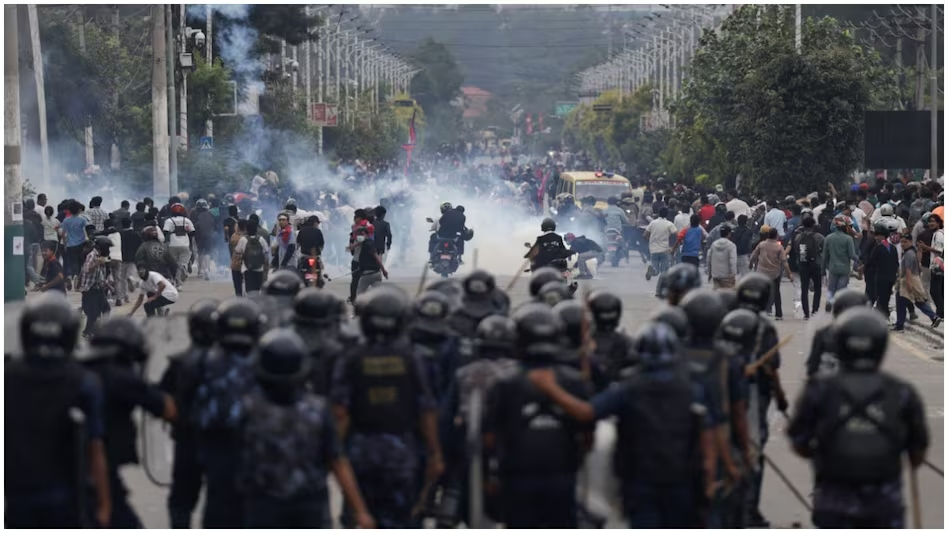Nepal witnessing massive youth driven turmoil
Nepal is witnessing a youth-driven upheaval as Gen Z takes to the streets in a show of force and defiance, signaling a turning point in the nation’s politics. What began as outrage over a sweeping social media ban has now evolved into a full-blown movement demanding accountability, transparency, and systemic reform.
Last week, the Oli government imposed a ban on 26 major platforms — including Facebook, WhatsApp, Instagram, X, and YouTube — claiming it was necessary to curb fake accounts, hate speech, and cybercrime.
But the youth interpreted it as an attack on freedom of expression and democratic rights, sparking protests across Kathmandu, Pokhara, Butwal, Bhairahawa, Bharatpur, and other cities.
Youth Beyond Social Media
While the government lifted the ban late Monday after an emergency cabinet meeting, the momentum of the movement could not be stopped. For Gen Z, this is not just about losing Instagram reels or YouTube videos — it is years of frustration with corruption, nepotism, and broken promises.
The viral online trend “Nepo Kid”, highlighting the extravagant lifestyles of politicians’ children, became a rallying cry for young protesters demanding justice and opportunity.
The Frontlines of Change
Thousands of young people, including students, poured into the streets of Kathmandu and beyond, chanting anti-government slogans and demanding Prime Minister KP Sharma Oli’s resignation. Police responded with water cannons, tear gas, and live rounds, leading to at least 19 deaths and over 400 serious injuries.
In a dramatic escalation, protesters set fire to the residence of Communications Minister Prithvi Subba Gurung, while demonstrations spread to Kalanki, Chapagaun, and other districts.
The crisis forced three ministers — Home Minister Ramesh Lekhak, Agriculture Minister Ramnath Adhikari, and Health Minister Pradip Paudel — to resign on moral grounds.
Global Parallels: Youth Movements That Changed History
Nepal’s youth-led protests are part of a larger global pattern where young people have catalyzed transformative change:
- Arab Spring (2010-2011): Social media-fueled youth protests toppled entrenched dictatorships in Tunisia, Egypt, and Libya.
- Hong Kong Protests (2019-2020): Students and young activists led movements demanding political freedoms and resisting authoritarian control.
- Chilean Student Movement (2011-2013): Youth protests pressured the government to reform public education and social policies.
- Climate Activism: Leaders like Greta Thunberg have shown how young voices can force governments and corporations to confront global crises.
In each case, young people refused to accept the status quo, demonstrating that when a generation feels unheard, it can reshape societies and challenge entrenched powers.
International and Regional Response
India’s Ministry of External Affairs urged its citizens in Nepal to exercise caution while calling for a peaceful resolution. The UN also expressed concern, emphasizing that authorities must respect freedom of assembly and use force judiciously.
Prime Minister Oli has called an all-party meeting, urging calm, but it is clear that Nepal’s youth are demanding systemic change and will not be silenced until their voices are heard.
Nepal’s protests are more than a reaction to a social media ban — they are a revolution of a generation refusing to tolerate corruption, nepotism, and authoritarian suppression.
As in Tunisia, Hong Kong, and Chile, the youth of Nepal are asserting that change is non-negotiable, and their actions may well mark the beginning of a historic political shift.
#NepalProtests #GenZRevolution #YouthUprising #NepoKid #ArabSpring #HongKongProtests #ChileanStudents #ClimateActivism #FreedomOfSpeech #Democracy #GlobalYouthPower #NepalUnrest




